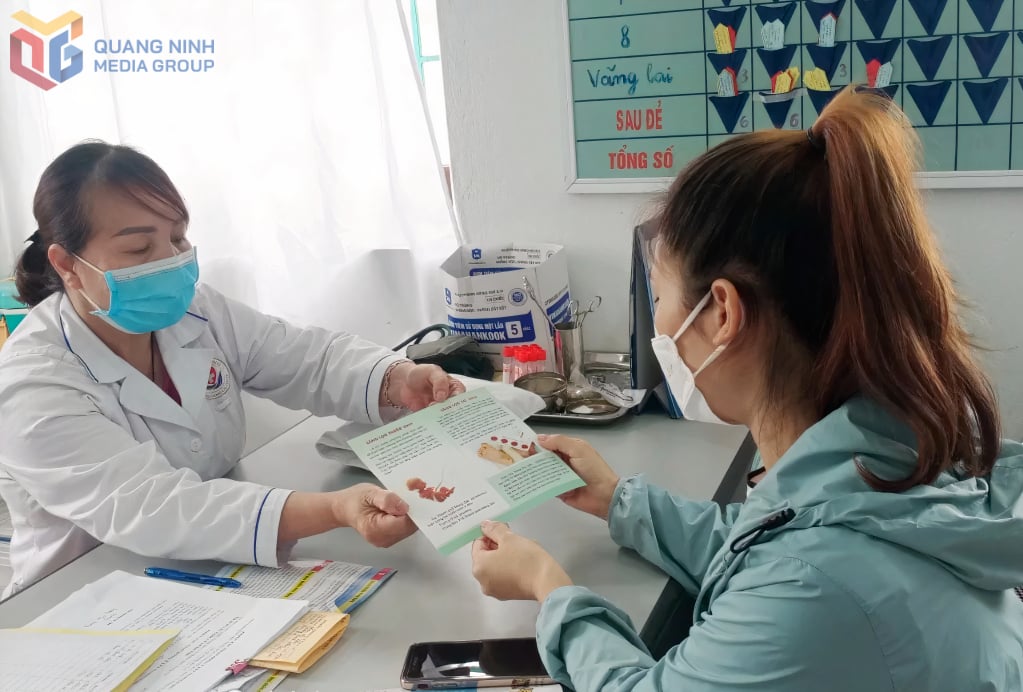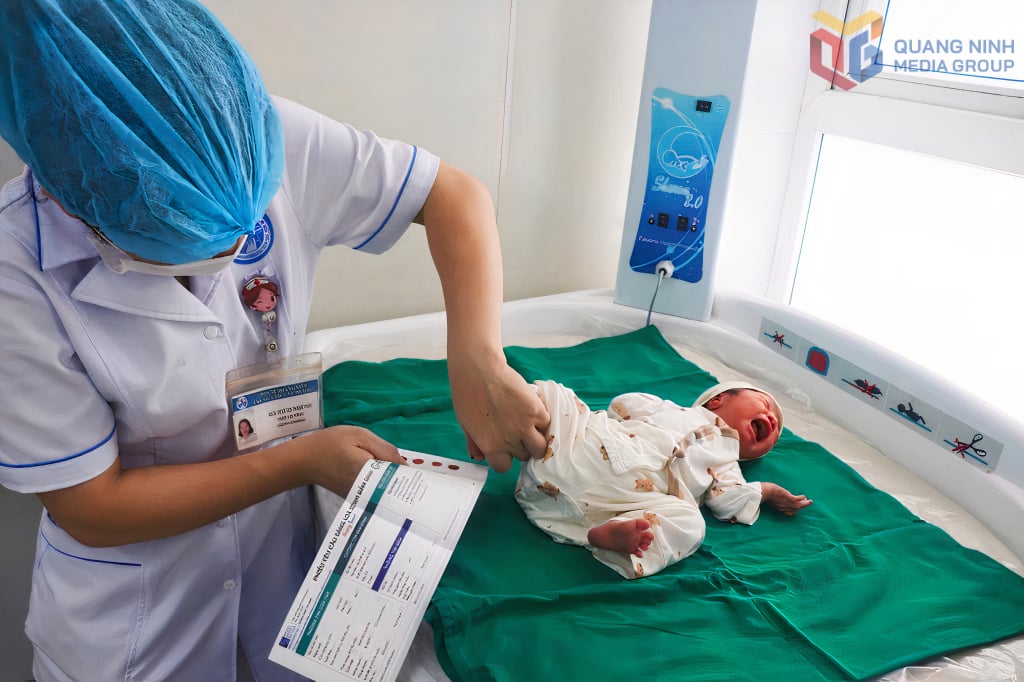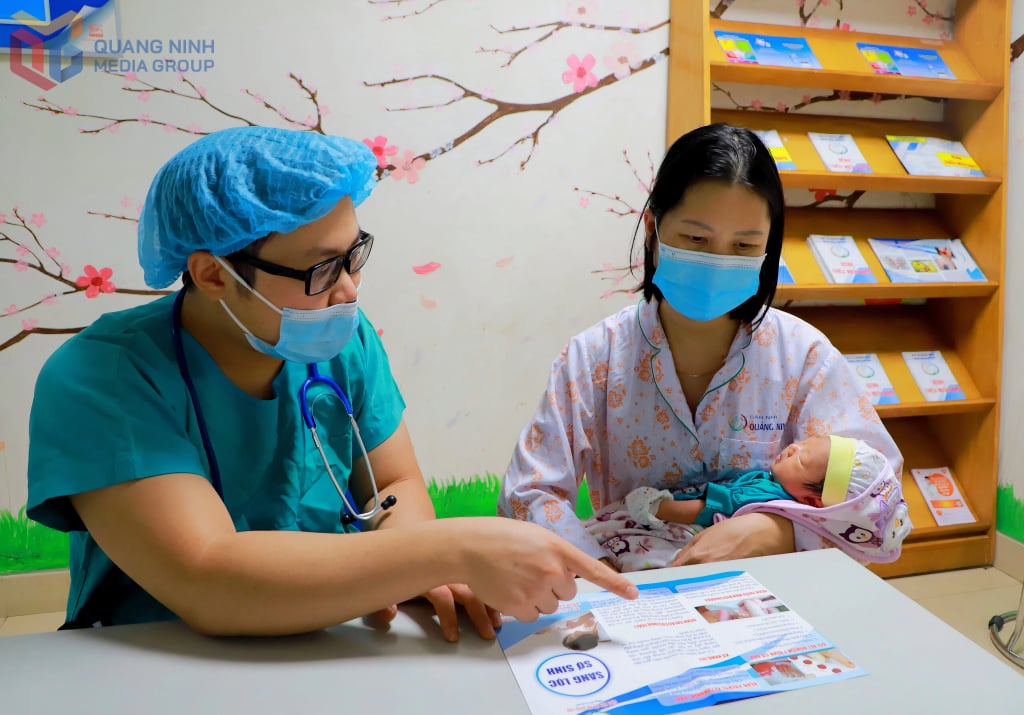
Prenatal screening is a test for pregnant women to know whether the fetus is healthy or not; especially abnormalities related to genetic or chromosomal abnormalities. From there, specialists will have timely treatment and intervention plans to minimize the child's abnormalities such as: Down syndrome, Edwards syndrome, thalassemia and neural tube defects.
According to obstetricians, there are 3 mandatory times for mothers to perform prenatal screening tests: the first 3 months of pregnancy, from the 11th week to 13 weeks and 6 days. At this time, the doctor will perform an ultrasound of the fetus's morphology, measure the nuchal translucency to detect Down syndrome... In the middle 3 months of pregnancy, the doctor will screen for morphological abnormalities of the fetus such as: Congenital heart disease and abnormalities of the fetal nervous system such as neural tube defects, abnormalities in the cardiovascular system, digestive system, reproductive system, bones. Ultrasound in the last 3 months of pregnancy, ultrasound at the 30-32nd week will help detect some abnormalities in the structure of the brain, arteries, heart...
Ms. Luu Thi Nhung (Duc Yen commune, Dam Ha district) said: When I knew I was pregnant, I regularly went to the District Health Center for check-ups, ultrasounds, and important pregnancy tests such as nuchal translucency measurement, gestational diabetes testing, etc.; through that, I gained knowledge to ensure a healthy pregnancy. After giving birth, I also did newborn screening for my baby, and so far my baby is very healthy, so I am very reassured.

Recognizing the importance of prenatal and newborn screening, Quang Ninh Obstetrics and Pediatrics Hospital regularly sends doctors and nurses who directly perform prenatal and newborn screening to attend many training courses to improve their professional skills in this method. At the same time, it organizes professional seminars to exchange and learn experiences in prenatal and newborn screening.
The hospital has invested in many modern equipment, helping to promptly detect fetal abnormalities, such as: 4D ultrasound machine; 2-plane background subtraction angiography system (DSA); prenatal and newborn screening system; genetic testing system... Many prenatal and newborn screening techniques have helped to take care of the health of pregnant women, giving birth to healthy children such as: Double test and Triple test; amniocentesis; non-invasive prenatal screening NIPT; Alpha - Beta thalasemia gene detection test using PCR-RFLP technique... have been applied.
From there, for each child after birth, the doctor will advise the family to perform a heel blood test to screen for genetic disorders and metabolism in the child; an echocardiogram to detect congenital heart defects; and a hearing test to screen and initially assess the child's hearing function.

Doctor CKI Dang Hong Duyen, Deputy Head of the Department of Neonatology (Quang Ninh Obstetrics and Pediatrics Hospital), said: By applying prenatal and neonatal screening methods, every year the hospital detects early many cases at high risk of endocrine, metabolic, genetic disorders, G6PD deficiency, congenital hypothyroidism, congenital adrenal hyperplasia, biotinidase deficiency, cystic fibrosis... From there, early intervention measures can be taken to treat children most effectively.
It can be seen that prenatal and newborn screening is an important solution to detect and intervene early in diseases in children while they are still in the womb and immediately after birth, helping children develop normally, or avoid serious consequences caused by birth defects, contributing to improving population quality.
Source: https://baoquangninh.vn/phong-ngua-di-tat-bam-sinh-o-tre-em-3356936.html


![[Photo] General Secretary To Lam visits exhibition of achievements in private economic development](https://vphoto.vietnam.vn/thumb/1200x675/vietnam/resource/IMAGE/2025/5/18/1809dc545f214a86911fe2d2d0fde2e8)

![[Photo] More than 17,000 candidates participate in the 2025 SPT Competency Assessment Test of Hanoi National University of Education](https://vphoto.vietnam.vn/thumb/1200x675/vietnam/resource/IMAGE/2025/5/17/e538d9a1636c407cbb211b314e6303fd)


![[Photo] National conference to disseminate and implement Resolution No. 66-NQ/TW and Resolution No. 68-NQ/TW of the Politburo](https://vphoto.vietnam.vn/thumb/1200x675/vietnam/resource/IMAGE/2025/5/18/adf666b9303a4213998b395b05234b6a)






















![[Photo] Prime Minister Pham Minh Chinh chairs meeting on science and technology development](https://vphoto.vietnam.vn/thumb/1200x675/vietnam/resource/IMAGE/2025/5/17/ae80dd74c384439789b12013c738a045)































































Comment (0)